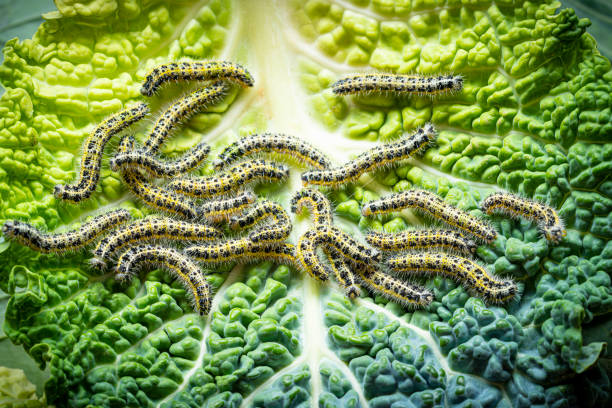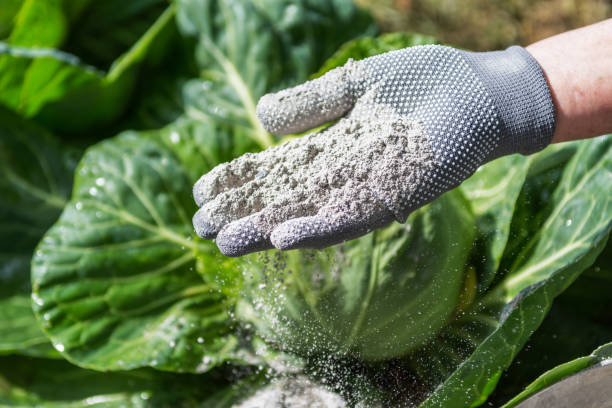Table of Contents
Introduction:

Are cabbage worms harmful to humans? This question has lingered in the minds of many, causing concern about the safety of consuming cabbage and other cruciferous vegetables.
This blog post will explore the facts surrounding cabbage worms and their potential impact on human health.
Let’s delve into the truth and dispel any misconceptions.
Understanding Cabbage Worms
Cabbage worms, also known as cabbage loopers or imported cabbage worms, are the larvae of certain moth species. The most common culprits are the cabbage white butterfly (Pieris rapae) and the diamondback moth (Plutella xylostella).
These pests have a distinct appearance with pale green bodies and velvety skin. They measure approximately 1 inch long and are usually found on the underside of cabbage leaves.
Cabbage Worms’ Feeding Habits
Cabbage worms are notorious for their voracious appetite and primarily target cruciferous plants, including cabbage, broccoli, kale, and cauliflower. Their feeding habits can result in unsightly damage to the leaves, potentially reducing the crop yield.
Are Cabbage Worms Harmful to Humans?
No, cabbage worms are not poisonous or toxic to humans. They do not produce any harmful substances or toxins that can cause harm when ingested. While the idea of consuming cabbage worms may seem unpleasant, they pose no direct threat to human health. source
The concern over cabbage worms stems from the fear of consuming vegetables infested with these pests. However, it is crucial to understand that cabbage worms themselves do not pose a direct health threat to humans.
They do not contain toxins or disease-causing agents that can harm human health. Consuming cabbage worms, either accidentally or by consuming infested vegetables, is not harmful to humans.
Precautions When Dealing with Cabbage Worms

Although cabbage worms are not harmful to humans, it is still important to take necessary precautions when handling infested vegetables.
Here are some recommended safety measures:
Thorough Washing: Before consuming cabbage or any cruciferous vegetable, ensure you wash them thoroughly under running water. This practice helps remove potential contaminants, including cabbage worms and their eggs.
Inspect and Remove: After washing, carefully inspect the leaves for any signs of cabbage worms. If you find any caterpillars or eggs, remove them by hand or trim away the affected areas.
Organic Pest Control Methods: If you grow your own vegetables and want to prevent cabbage worm infestations, consider implementing organic pest control methods. This can include introducing natural predators such as parasitic wasps or nematodes, or using organic insecticides derived from botanical sources.
Read About How Much Cabbage is Too Much?
Conclusion
So, are cabbage worms harmful to humans? As explained in the article, it is not harmful to humans. While they can damage crops and require precautions when handling infested vegetables, the consumption of cabbage worms or infested produce is safe.
By understanding the facts and taking proper precautions, we can enjoy the nutritional benefits of cabbage and other cruciferous vegetables without unnecessary worry.
FAQ
Can eating cabbage worms make you sick?
No, eating cabbage worms will not make you sick. These caterpillars do not carry any diseases or parasites that can harm human health. However, it is advisable to wash and inspect vegetables thoroughly to ensure proper hygiene and remove any unwanted pests before consumption.
Are there any health risks associated with consuming vegetables infested with cabbage worms?
There are no significant health risks associated with consuming vegetables infested with cabbage worms. The primary concern is the presence of the worms themselves, which can be off-putting for some individuals. However, proper washing and inspection can effectively remove these pests, ensuring the vegetables are safe for consumption.
Can cabbage worms cause allergic reactions in humans?
Cabbage worms are unlikely to cause allergic reactions in humans. Allergies are typically triggered by specific proteins or compounds in certain foods or substances. Cabbage worms do not contain known allergens, and there have been no reported cases of allergic reactions resulting from their consumption.






